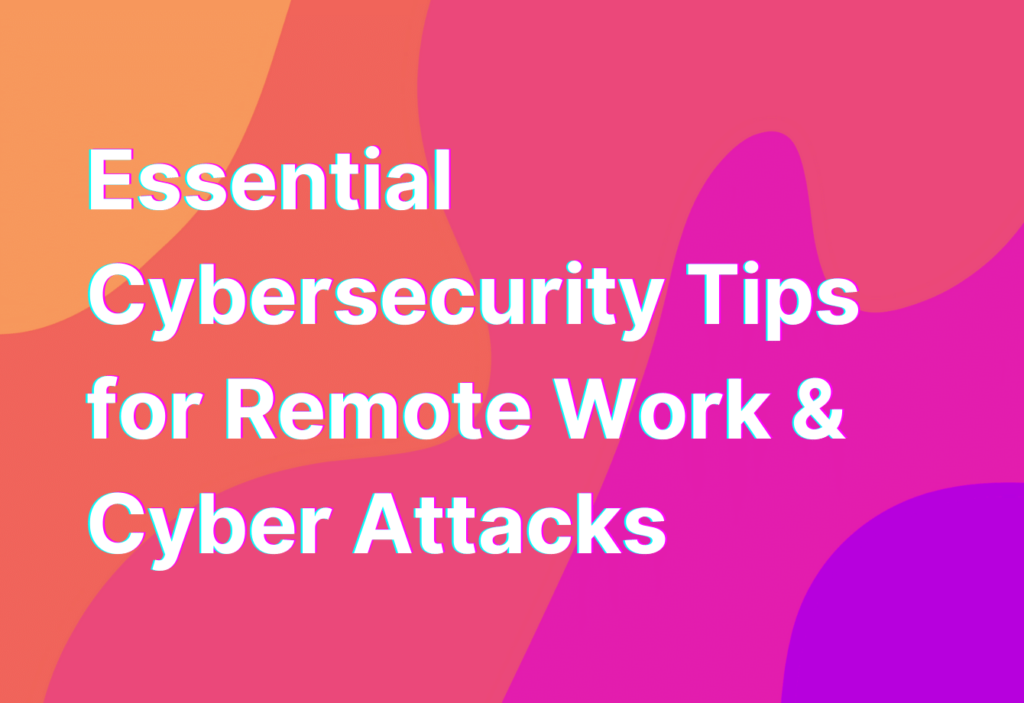Essential Cybersecurity Tips for Remote Work & Cyber Attacks
Hey there, remote workers! It’s Ashley, your friendly remote work advocate, here to share some essential cybersecurity tips to keep you safe from cyber attacks. As someone with 10 years of remote work experience in the tech industry, I’ve seen firsthand the importance of protecting yourself and your work from online threats. So, grab your favorite cup of coffee and let’s dive in!
1. Keep Your Devices Updated
First things first, make sure all your devices are up to date with the latest software and security patches. Cyber attackers are constantly finding new vulnerabilities to exploit, and software updates often include important security fixes. So, don’t ignore those update notifications!
Pro tip: Set your devices to automatically update so you don’t have to worry about manually checking for updates. Trust me, it’s a game-changer!
2. Use Strong and Unique Passwords
Okay, I know we’ve all heard this one a million times, but it’s worth repeating: use strong and unique passwords for all your accounts. Avoid using common passwords like “password123” or “123456” (seriously, people still use these!). Instead, opt for a combination of uppercase and lowercase letters, numbers, and special characters.
And please, please, please don’t reuse passwords across multiple accounts. I know it’s tempting, but if one account gets hacked, all your other accounts become vulnerable too. Stay safe and keep those passwords unique!
3. Enable Two-Factor Authentication
Two-factor authentication (2FA) adds an extra layer of security to your accounts by requiring a second form of verification, usually a code sent to your phone. It may seem like a hassle, but trust me, it’s worth it. Even if someone manages to crack your password, they won’t be able to access your account without that second verification step.
Pro tip: Use an authenticator app like Google Authenticator or Authy instead of relying on SMS-based 2FA. SMS can be intercepted, while authenticator apps provide a more secure option.
4. Be Wary of Phishing Attempts
Ah, phishing, the oldest trick in the cyber attacker’s book. Phishing attempts can come in the form of emails, text messages, or even phone calls, and they often try to trick you into revealing sensitive information like passwords or credit card numbers.
Always double-check the sender’s email address, look for spelling mistakes or odd grammar, and be cautious of any urgent requests for personal information. When in doubt, don’t click on any links or download any attachments. Better safe than sorry!
5. Use a VPN for Secure Connections
When working remotely, you’re likely connecting to various Wi-Fi networks, some of which may not be secure. That’s where a Virtual Private Network (VPN) comes in handy. A VPN encrypts your internet connection, making it much harder for cyber attackers to intercept your data.
Pro tip: Look for a reputable VPN provider that doesn’t keep logs of your online activity. After all, privacy is just as important as security!
And there you have it, my top 5 essential cybersecurity tips for remote work. Remember, staying safe online is a continuous effort, so make sure to stay informed about the latest threats and best practices.
For more in-depth information on protecting yourself from cyber attacks, check out this article on DDoS Cybersecurity. It’s a must-read for anyone working remotely!
Stay safe, stay secure, and keep rocking that remote work lifestyle!


